Filter by
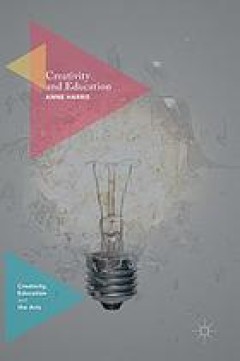
Creativity and Education
This book advances an environmental approach to enhancing creativity in schools, by interweaving educational creativity theory with creative industries environmental approaches. Using Anna Craft's last book Creativity and Education Futures as a starting point, the book sets out an up-to-date argument for why education policy should be supporting a birth-to-workplace approach to developing creat…
- Edition
- 1
- ISBN/ISSN
- 9781137572240
- Collation
- xxxi, 156 pages
- Series Title
- Creativity, Education and the Arts
- Call Number
- 305.231
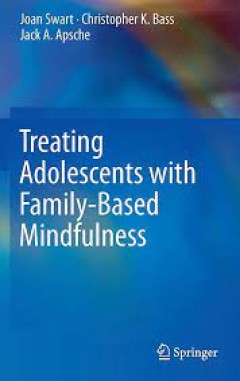
Treating Adolescents with Family-Based Mindfulness
A new take on therapeutic mindfulness with specific applications to troubled and delinquent youth is the focus of this innovative text. It introduces Family Mode Deactivation Therapy (FMDT) and its core concepts and methodologies, differentiating it from other cognitive and mindfulness therapies for adolescents with problem behaviors and comorbid conditions. Step by step applications of FMDT fr…
- Edition
- -
- ISBN/ISSN
- 978-3-319-12700-2
- Collation
- -
- Series Title
- -
- Call Number
- -
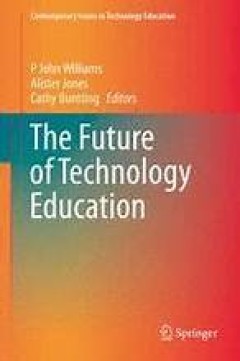
The Future of Technology Education
Twenty-five years ago there was increasing optimism in policy, curriculum and research about the contribution that technology education might make to increased technological literacy in schools and the wider population. That optimism continues, although the status of technology as a learning area remains fragile in many places. This edited book is offered as a platform from which to continue…
- Edition
- 1
- ISBN/ISSN
- 978-981-287-170-1
- Collation
- XII, 281, 7 b/w illustrations, 4 illustrations in colour
- Series Title
- Contemporary Issues in Technology Education
- Call Number
- -
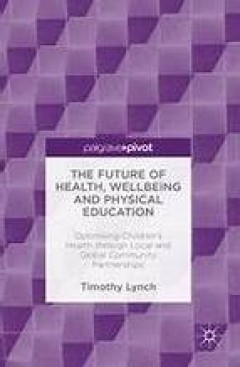
The Future of Health, Wellbeing and Physical Education
This book uses the example of a partnership journey between universities, schools, the local health industry as well as a number of government organisations which worked to ensure the growth of physical education in primary education. The initiative employed the United Nations (UN) ideals as a model and contextualised them within local schools and communities. What began as a pathway seed quick…
- Edition
- 1
- ISBN/ISSN
- 978-3-319-31667-3
- Collation
- XI, 174, 3 b/w illustrations, 3 illustrations in colour
- Series Title
- -
- Call Number
- -
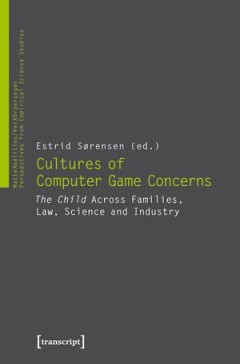
Cultures of Computer Game Concerns : The Child Across Families, Law, Science …
The same computer games are played by youths all over the world, and worldwide games become matters of concern in relation to children: worries rise about addiction, violence, education, time, and economy. Yet, these concerns vary depending upon where they are situated: in families, legal contexts, industry or science. They also play out differently across countries and cultures. This situated …
- Edition
- -
- ISBN/ISSN
- 9783839439340, 9783837639346
- Collation
- -
- Series Title
- -
- Call Number
- 362 SOR c
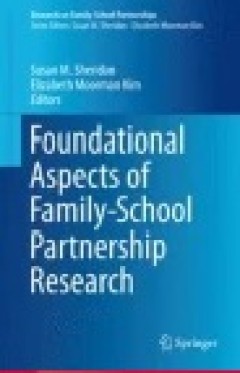
Foundational Aspects of Family-School Partnership Research
This volume focuses on how family-school partnerships are conceptualized, defined, and operationalized as well as the research that is needed to advance these foundational issues. Each chapter integrates prevailing approaches into a research-based framework for supporting learning from pre-K through high school. The book incorporates structural and relational methods into the larger context of …
- Edition
- -
- ISBN/ISSN
- 978-3-319-13838-1
- Collation
- XIII, 126 pages
- Series Title
- Research on Family-School Partnerships
- Call Number
- -
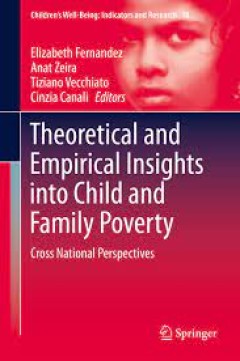
Theoretical and Empirical Insights into Child and Family Poverty Cross Natio…
This book brings together a range of theoretical and empirical perspectives on conceptualization, measurement, multidimensional impacts and policy and service responses to address child and family poverty. It illuminates issues and trends through country level chapters, thus shedding light on dynamics of poverty in different jurisdictions. The book is structured into three sections: The first i…
- Edition
- -
- ISBN/ISSN
- 978-3-319-17506-5
- Collation
- -
- Series Title
- -
- Call Number
- -
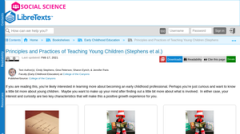
Principles and Practices of Teaching Young Children
If you are reading this, you’re likely interested in learning more about becoming an early childhood professional. Perhaps you’re just curious and want to know a little bit more about young children. Maybe you want to make up your mind after finding out a little bit more about what is involved. In either case, your interest and curiosity are two key characteristics that will make this a pos…
- Edition
- -
- ISBN/ISSN
- -
- Collation
- -
- Series Title
- -
- Call Number
- 370 STE p

Observation and Assessment in Early Childhood Education
To provide children with a safe and nurturing learning environment and to maintain program effectiveness, teachers must incorporate observation, documentation and assessment into their daily routines. To truly be effective, teachers must develop skills and strategies that are grounded in best practices. In this chapter you will be presented with information that highlights how observation a…
- Edition
- -
- ISBN/ISSN
- -
- Collation
- -
- Series Title
- -
- Call Number
- 370 ELA o
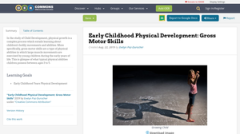
Early Childhood Physical Development : Gross Motor Skills
In the study of Child Development, physical growth is a complex process which entails learning about children's bodily movements and abilities. More specifically, gross motor skills are a type of physical abilities in which large muscle movements are exercised by young children during the early years of life. This is glimpse of what typical physical abilities children possess between ages 3 to 5.
- Edition
- -
- ISBN/ISSN
- -
- Collation
- -
- Series Title
- -
- Call Number
- 612 DUR e
 Computer Science, Information & General Works
Computer Science, Information & General Works  Philosophy & Psychology
Philosophy & Psychology  Religion
Religion  Social Sciences
Social Sciences  Language
Language  Pure Science
Pure Science  Applied Sciences
Applied Sciences  Art & Recreation
Art & Recreation  Literature
Literature  History & Geography
History & Geography